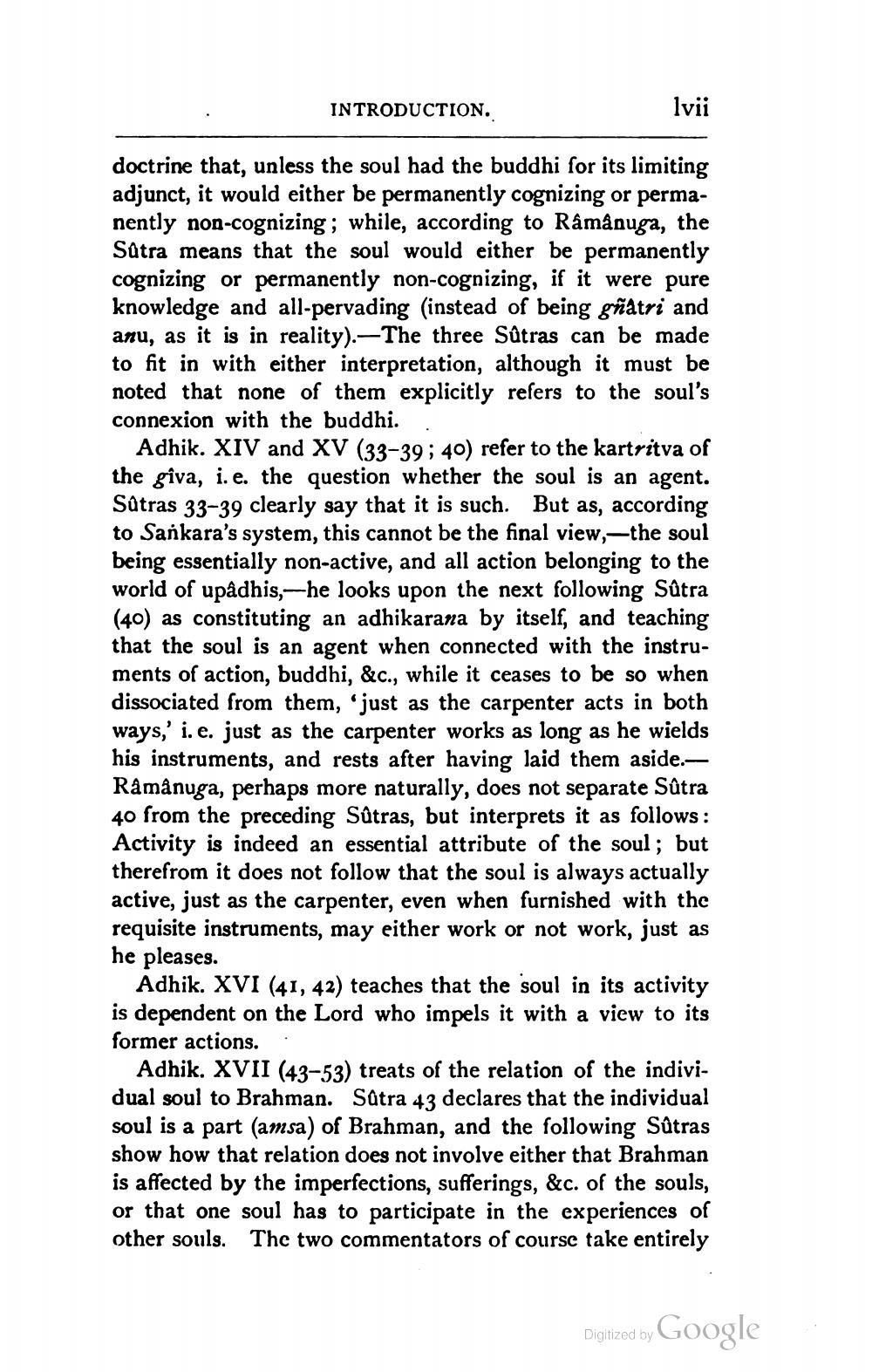________________
INTRODUCTION.
lvii
doctrine that, unless the soul had the buddhi sor its limiting adjunct, it would either be permanently cognizing or permanently non-cognizing ; while, according to Râmânuga, the Sutra means that the soul would either be permanently cognizing or permanently non-cognizing, if it were pure knowledge and all-pervading (instead of being gñatri and anu, as it is in reality).—The three Sûtras can be made to fit in with either interpretation, although it must be noted that none of them explicitly refers to the soul's connexion with the buddhi..
Adhik. XIV and XV (33-39; 40) refer to the kartritva of the gîva, i.e. the question whether the soul is an agent. Sûtras 33-39 clearly say that it is such. But as, according to Sankara's system, this cannot be the final view,—the soul being essentially non-active, and all action belonging to the world of upâdhis,-he looks upon the next following Sûtra (40) as constituting an adhikarana by itself, and teaching that the soul is an agent when connected with the instruments of action, buddhi, &c., while it ceases to be so when dissociated from them, just as the carpenter acts in both ways,' i.e. just as the carpenter works as long as he wields his instruments, and rests after having laid them aside.Râmânuga, perhaps more naturally, does not separate Sûtra 40 from the preceding Sûtras, but interprets it as follows: Activity is indeed an essential attribute of the soul; but therefrom it does not follow that the soul is always actually active, just as the carpenter, even when furnished with the requisite instruments, may either work or not work, just as he pleases.
Adhik. XVI (41, 42) teaches that the soul in its activity is dependent on the Lord who impels it with a view to its former actions..
Adhik. XVII (43-53) treats of the relation of the individual soul to Brahman. Sätra 43 declares that the individual soul is a part (amsa) of Brahman, and the following Sûtras show how that relation does not involve either that Brahman is affected by the imperfections, sufferings, &c. of the souls, or that one soul has to participate in the experiences of other souls. The two commentators of course take entirely
Digitized by Google




